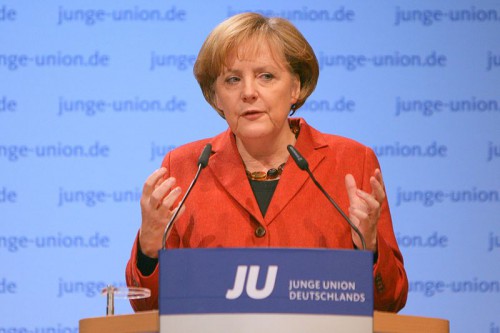By: Roy Ben-Joseph
Lots of things come to my mind when I hear the word Germany. While those things can be good or evil, bright or dark, based on the last 500 years, it always brings one word to mind: efficiency. Is there another nation in the world that is more efficient than Germany? Everything in that country works like a clock (a German cuckoo clock.) They have the best roads on the planet (where else can you drive 170 MPH and all you are going to get are cars behind you beeping at you to go a little faster?) They have some of the best education in the world, healthcare, and their economy is actually doing great while everybody else around is collapsing and sinking in debt.
While we may be able to take some credit for that as both Japan and Germany became better nations since the US presence in those nations post-WWII, it is still overwhelming to see what Germany accomplished and how the German economy just keeps growing while everybody else is in a free fall. If that is the case, why is it that after the last elections to the Bundestag last month, many Germans think that a major change is required?

(Photo courtesy of Wikimedia Commons)
The answer in one word is efficiency. Yes, the same country I just called efficient seems to disagree with me. They are perfectionists. That is the Germans and that is why they are doing better than us. We would accept their situation with open arms while they think there is still room for improvement. These inefficient economic moves are widely discussed in Germany every day and were a major concern during the last elections. When we hear that the EU has bailed Greece out of their bankruptcy it is a lie. The EU did not bail out Greece, Germany did, because the entire EU is full of countries that do not know anything about economic efficiency, and they are all in major debt right now. So who has to save Greece? Germany has to. That does not make a lot of people happy back in Berlin or Stuttgart.
The Germans have always been known to be hard workers. Arbeitman is a common last name for Germans. It is constructed of two words: Arbeit and man. Arbeit means work and I do not think I need to explain the second part. Together, we get Workman. The bottom line is that Germans work very hard, harder than a lot of people think, and they devote themselves to work and do not take breaks. In Greece, we can find a very hedonistic culture that has wasted a lot of money and did not work as hard as the Germans. Don’t get me wrong, Greece is a beautiful country. The Mediterranean view and its harbors are absolutely amazing, but at the same place you will find people who take four hours of break from work on a 10 hour work schedule to drink and look at this amazing view. That is the exclamation point for Germans because there is nothing new about Greece’s lifestyle. This had been going on for years but eventually an economic collapse was imminent.
The main question here is whether or not it is fair that Germany has to bail out Greece. No, it is not fair that the hard working people in Germany are being rewarded with their tax money bailing out a hedonistic nation that is paying the price for negligence and total irresponsibility. And the second question: Is it necessary for Germany to do that? Yes it is, because if Greece goes bankrupt, that would be the obituary of the EU. The rest of the EU nations are not doing well either simply because they were not as efficient as the Germans. Germany has to do most of the work by itself. Great reward. Work hard and get your butt kicked. That is the message German children, and children everywhere are learning today.





